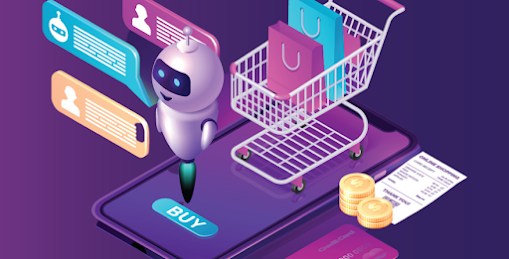In recent years, artificial intelligence (AI) has made tremendous strides. One of the most exciting developments is generative AI the talk of the town. Every industry is experimenting with Generative AI and sees it as a great opportunity to enhance productivity in some ways.
The healthcare industry also acknowledges it to transforming
medical care. But how exactly does generative AI fit into the healthcare
industry? What is the scope and how it will become an inseparable part of the
future?
Generative
AI refers to the use of artificial intelligence to create content in text,
video, and visual formats. They learn from existing data through deep learning
techniques. Gen AI works on the principle of neural networks. They have the
ability to analyse vast amounts of data based on that they create output that
closely resembles the data it was trained on. Learn how far it can be used in
the healthcare industry in this blog.
How can Generative
AI boon Healthcare?
Generative AI has the potential to revolutionize the
healthcare industry in multiple ways. Explore some of the key applications of
generative AI in healthcare:
Virtual Health Assistants: The most common use of
generative AI is in the form of virtual health assistants It helps patients
manage their health outside of traditional doctor visits hours.
These assistants can generate responses to patient
inquiries, and provide guidance on medication schedules. This application is
particularly helpful in improving patient engagement and reducing the
administrative burden on healthcare professionals.
Personalized Treatment Plans: Another
fascinating application is in personalized medicine. Healthcare providers are
beginning to use AI to analyze a patient’s genetic data, lifestyle, and medical
history to create personalized treatment plans. Generative AI helps by
generating individualized predictions about how a patient might respond to
certain treatments. Botgo says it could
drastically improve patient outcomes by tailoring therapies to what works best
for each person, moving away from a “one-size-fits-all” approach.
Drug Discovery and Development: One of the prominent
usages of generative AI is mark in drug discovery. We look at the different
steps involved in drug discovery, such as identifying diseases, diagnosing
them, finding drug targets, screening potential treatments, and discovering
leads.
AI is especially helpful in these steps because it can
analyze large amounts of data and spot patterns that humans might miss. The
AI’s better predictions here can speed up the process of discovering drugs and
managing clinical trials. Traditionally, this involves lengthy and expensive
processes from testing to trial but the use of AI makes drug development faster
and cheaper by handling large data, which reduces the time and cost of getting
new drugs to the market.
Medical Imaging and Diagnostics: Generative AI,
powered by large amounts of unlabelled data, automates tasks in medical imaging
to address healthcare pain points like staff shortages and clinician burnout.
Not only does it just improve workflow efficiency but allows doctors to focus
on more complex patient care. Key technologies such as hardware and cloud
infrastructure, backed by major tech companies, support this progress.
AI-powered systems now scan X-rays, MRIs, CT scans, and
more, spotting issues that might be overlooked by humans. Along with that, it
provides diagnostic suggestions to help doctors in making better decisions.
Conclusion
Generative AI is contributing huge benefits to the
healthcare industry. It offers innovative solutions to some of the most
pressing challenges in the field.
From drug discovery to personalized treatment plans and
diagnostics, the potential applications are vast and varied. As automation
service continues to evolve, we can expect AI to play an increasingly vital
role in shaping the future of healthcare. That makes the industry more
accurate, and accessible than ever before.
Source: https://botgo.io/blogs/the-complete-guide-generative-ai-in-the-healthcare-industry







0 Comments